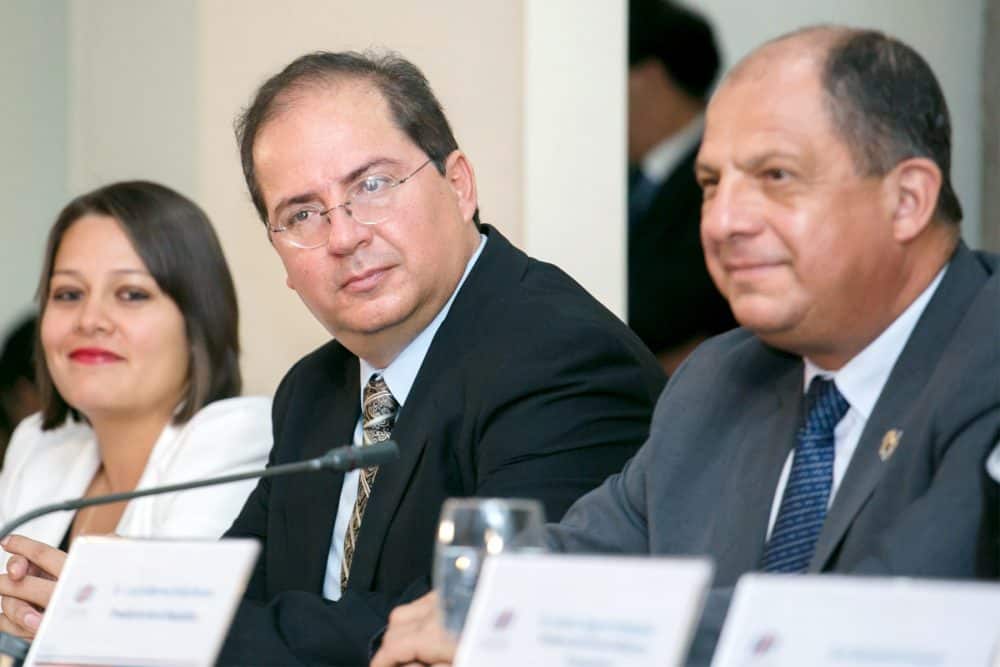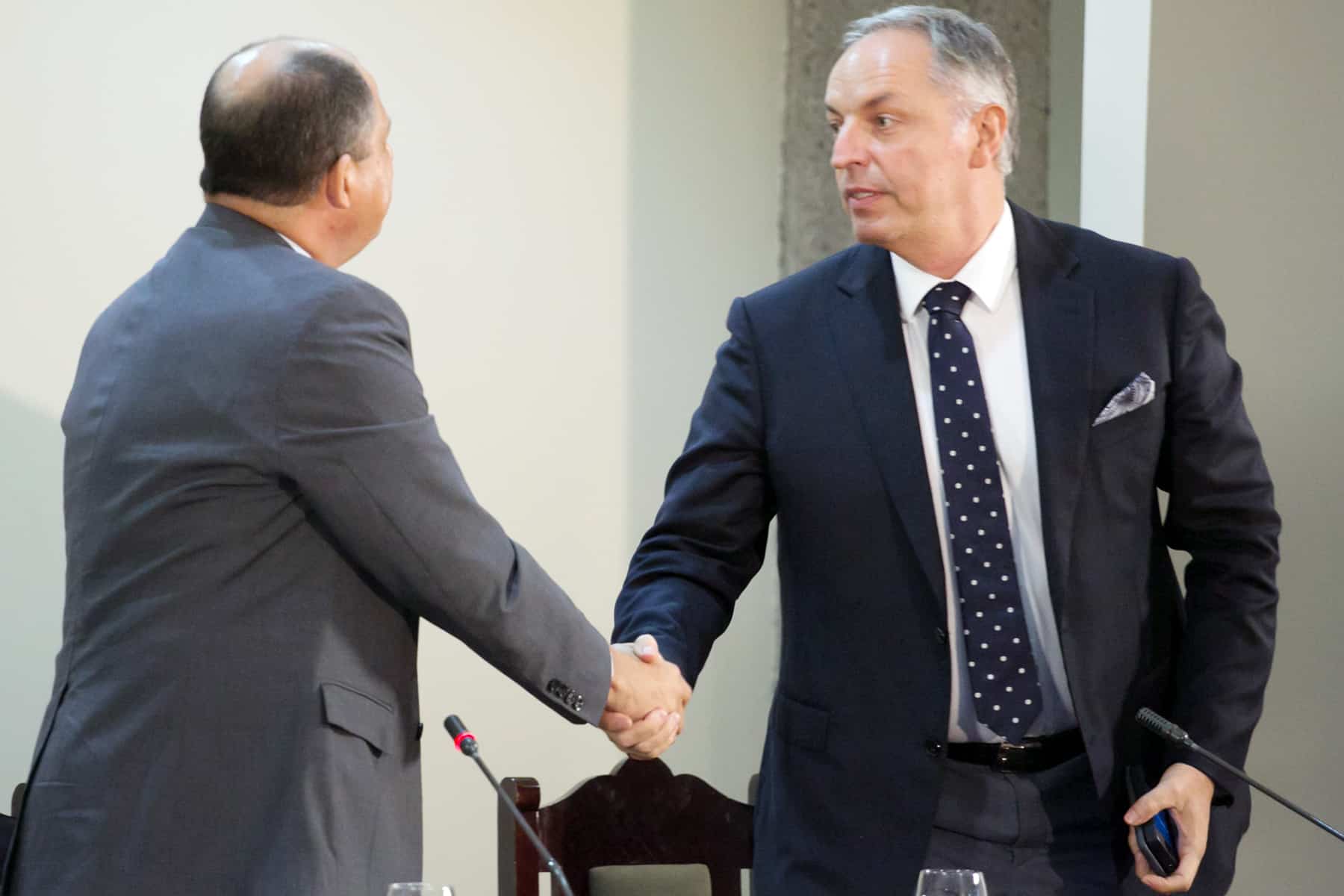The weekly press conference at Casa Presidencial on Tuesday was marked by more changes in President Luis Guillermo Solís’ cabinet as Wilhelm von Breymann submitted his resignation as Costa Rica’s tourism minister and Solís announced the appointment of a communications minister. The president hadn’t previously had a communications minister.
Von Breymann said he was leaving his post for personal reasons. But in recent months he’s been criticized by representatives of the tourism sector for not defending their interests in the face of government decisions that, they said, hurt the industry.
Von Breymann is the fifth minister and the 16th official to leave Solís’ administration during its first year.
Last month, tourism leaders met with Solís and demanded more support to boost their sector. At the time, the heads of the National Tourism Chamber (CANATUR), Pablo Abarca, and the Costa Rican Hotels Chamber, Gustavo Araya, told the president they wanted more active participation from von Breymann in the government’s decisionmaking.
The former minister — who did not attend the meeting arguing schedule conflicts — defended himself by saying that many tourism leaders supported him. But he only cited the support of the Costa Rican Restaurants Chamber.
Among the government decisions they said affected tourism, Abarca and Araya noted the Finance Ministry’s intentions to tax entrance fees to national parks and the administration’s lack of interest in building public infrastructure projects to facilitate tourism.
In response, von Breymann cited as his achievements the arrival of new airlines, the increase in flight frequencies and the 8 percent growth in revenue recorded by the tourism sector last year.
Following the announcement of von Breymann’s departure, CANATUR‘s Abarca said he respected the decision.
“We, however, hope the new minister will facilitate contact and work to give the tourism sector the importance it deserves and requires. We have a great opportunity to remain leaders in the region, but we have to make smart decisions and react promptly,” Abarca said.
New Communications Minister
President Solís also announced the appointment of journalist Mauricio Herrera Ulloa as communications minister on Tuesday.
“Mauricio’s journalism background and his professional experience are not only personal achievements, they also will favor a positive environment for enforcing our government’s commitment to inform and communicate properly,” the president said. Up until now, Casa Presidencial’s communications have been the responsibility of Communications Director Boris Ramírez.
Herrera has been editor-in-chief of the well-regarded weekly Semanario Universidad since 2013. Previously, he served as Special Rapporteur for Freedom of Expression at the Organization of American States and also held the same post at the Inter-American Commission on Human Rights.
Before that, he was part of daily La Nación’s investigative reporting team, whose publications led to the arrest and prosecution of ex presidents Rafael Ángel Calderón Fournier and Miguel Ángel Rodríguez Echeverría. Both of them were eventually acquitted.
Herrera joins an administration that has been plagued by turnover. Just in the past month, four top officials, including von Breymann, have either left or been fired from their posts.
Last week Solís asked now ex-Presidency Minister Melvin Jiménez for his resignation following a series of conflicts and public relations scandals. Earlier this month, the leaking of a controversial draft bill to amend the country’s Radio and Television Law cost the science and technology minister and vice minister their posts.
At Tuesday’s news conference Solís announced that a blue-ribbon committee made up of former Supreme Court Justice Ana Virginia Calzada, journalist Armando Vargas Araya and political scientist Víctor Ramírez would analyze the draft radio and television bill and suggest improvements.







